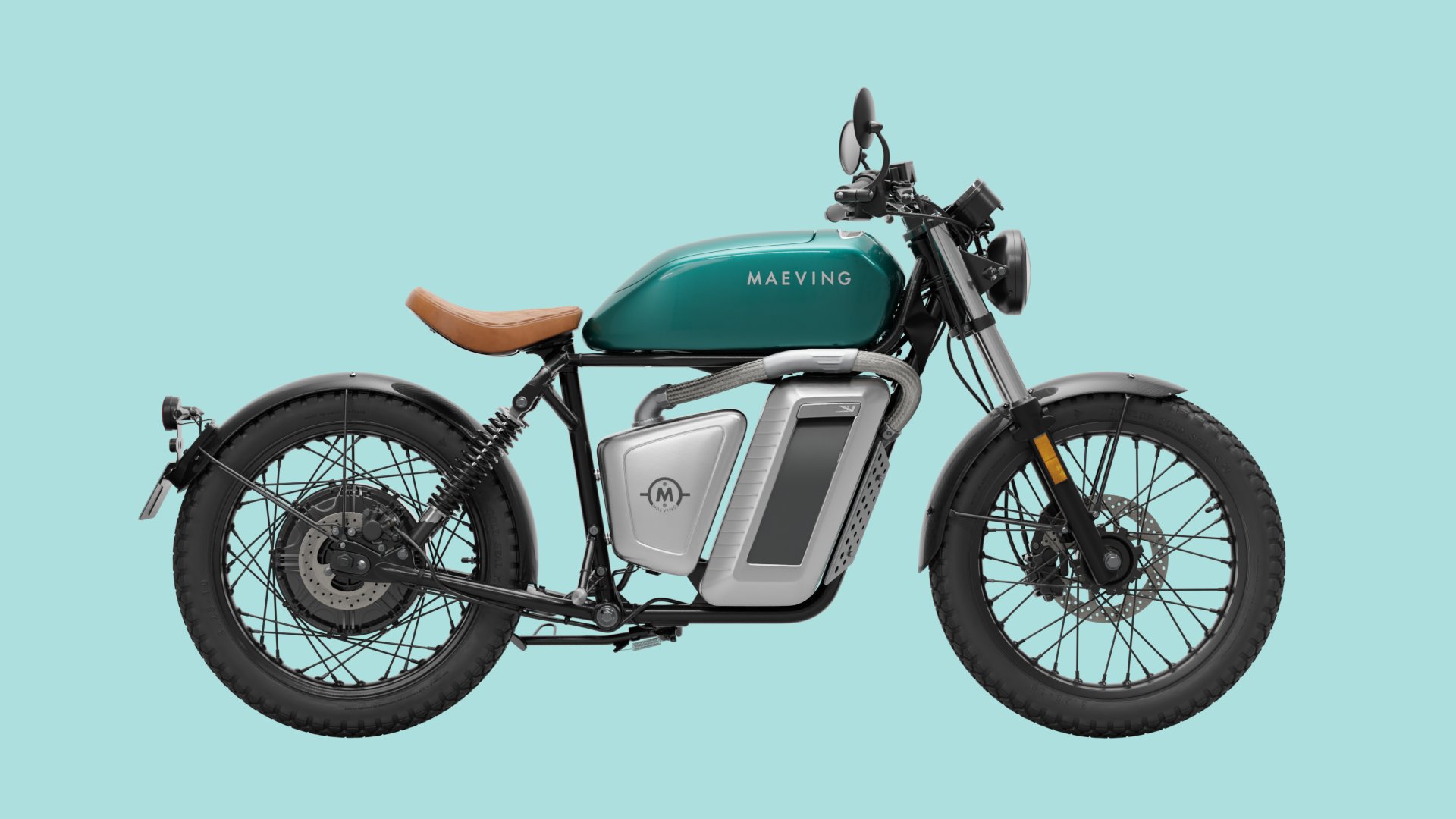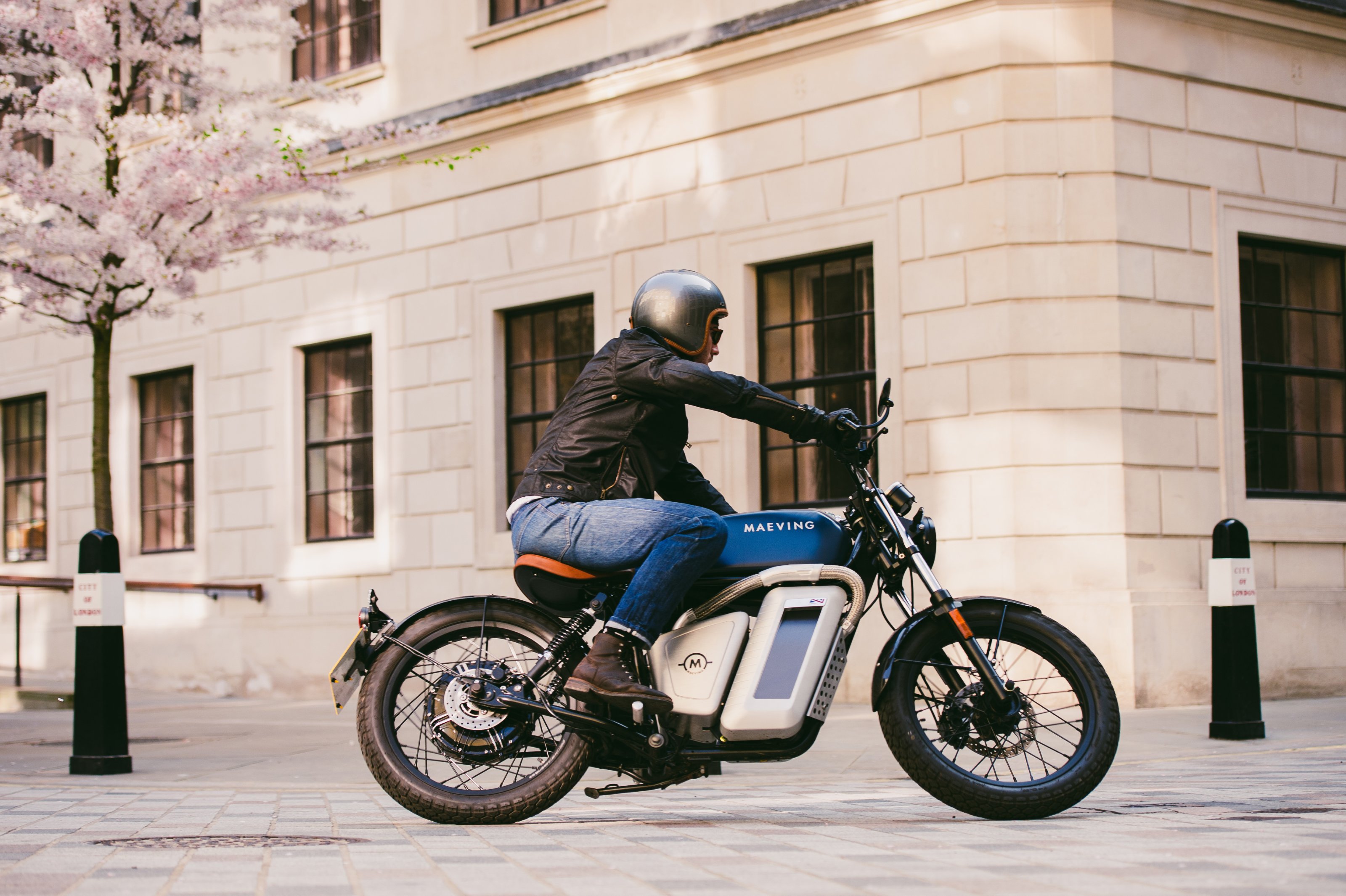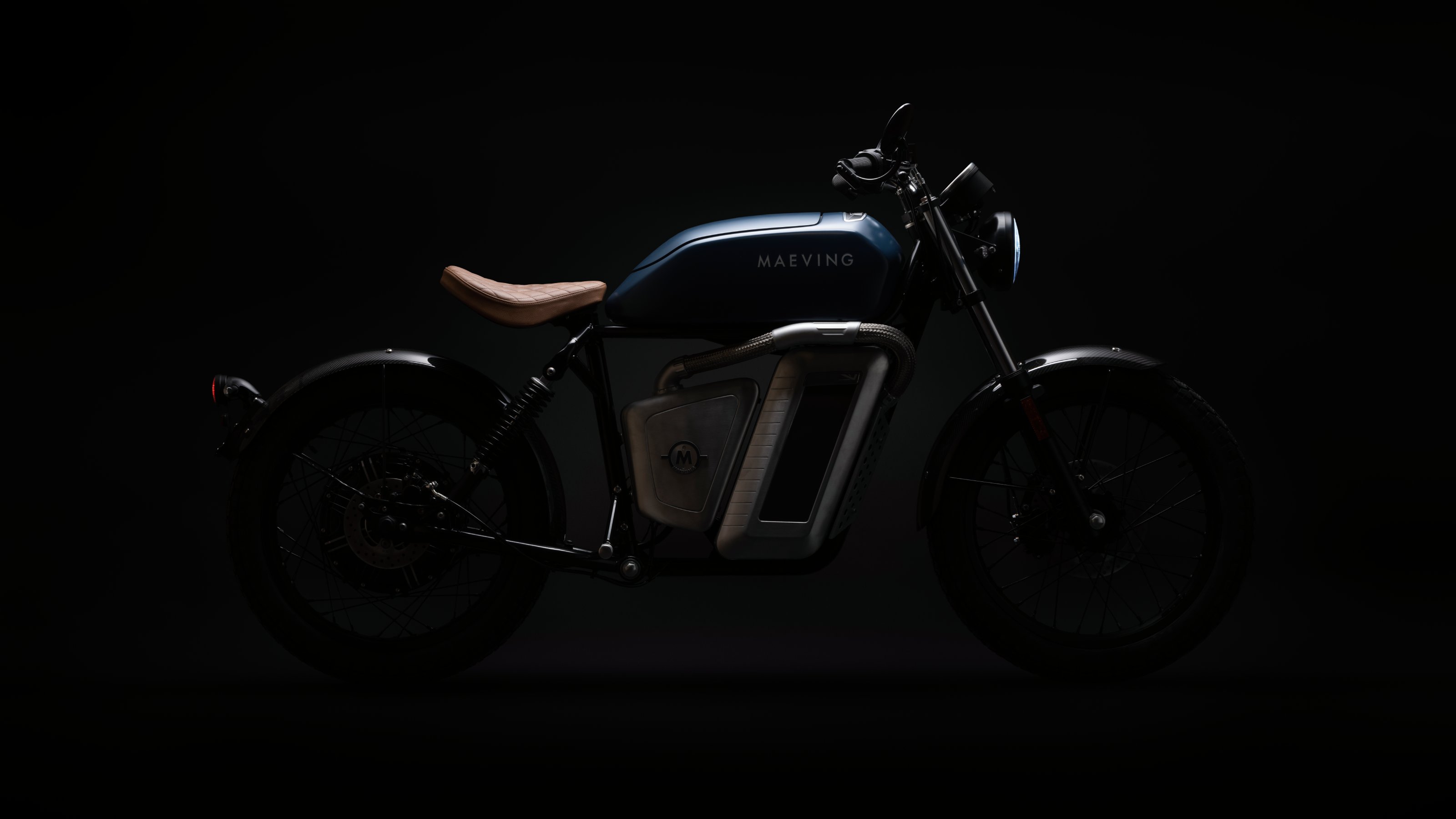Maeving RM1 electric motorbike is a classic looker with zero emissions
The road opens up with the Maeving RM1, a retro-styled e-motorbike that splices practicality with style

The e-motorbike hasn’t taken off in quite the same way as the e-bike, perhaps because of the added skills and gear required to make the most of a powerful electric two-wheeler. New British brand Maeving begs to differ, however, offering up a classically styled e-motorbike that it describes as perfect for a short commute.
Meet the Maeving RM1

The Maeving RM1 is the brainchild of co-founder Seb Inglis-Jones. An entrepreneur who was fascinated by electric mobility, Inglis-Jones spent a month in China researching the market. ‘At that point, they were selling 22 million electric bikes a year in China. In the UK, it was under 300,’ he notes. All that has subsequently changed, of course, but Inglis-Jones wanted to get in at the start, only pivot to an almost completely unexplored sector, the electric motorbike.

After initially considering importing a product, he was put off by the low quality of design and build. ‘In the UK, we have a revered heritage of motorbike design,’ he says, explaining why the company’s debut product looks the way it does. ‘We believe we’ve designed a bike that’s desirable,’ Inglis-Jones continues, citing design cues that reference the classic motorbike style of the 1950s, 1960s and even earlier.

Maeving hired Triumph’s former head of product, Graeme Gilbert, as well as others from the famous British bike brand, helping create a visual language that was instantly familiar. Elements like the analogue speedometer, stitched leather seat and aluminium details give off a classic vibe. The company’s Coventry-based operation can turn out five bikes a day, off-setting the vintage styling with modern electronics and a drive unit from Bosch, capable of taking the RM1 to a top speed of 45mph with an 80-mile range (if you specify the twin battery option).

As to whether the silent running newcomer is a threat to the clannish world of motorcyclists, Inglis-Jones will not be drawn. ‘Our customers make conscious choices and were never massively enthralled with the petrol-powered past,’ he ventures, admitting that although he still rides his traditional motorbike at the weekend, ‘there’s definitely a conflict between the old world and the new.’

Design gives the RM1 the edge, but it’s the company’s commitment to removeable batteries that will see it go far. ‘The tech is improving all the time,’ Inglis-Jones says, ‘so you’ll be able to retro-fit new batteries into the bike.’ As a stylish blend of the analogue world of two-wheeled freedom, with the silence and convenience of electric drive, the Maeving RM1 is hard to beat.
Maeving RM1, £5,995, Maeving.com
Wallpaper* Newsletter
Receive our daily digest of inspiration, escapism and design stories from around the world direct to your inbox.
Jonathan Bell has written for Wallpaper* magazine since 1999, covering everything from architecture and transport design to books, tech and graphic design. He is now the magazine’s Transport and Technology Editor. Jonathan has written and edited 15 books, including Concept Car Design, 21st Century House, and The New Modern House. He is also the host of Wallpaper’s first podcast.
-
 Put these emerging artists on your radar
Put these emerging artists on your radarThis crop of six new talents is poised to shake up the art world. Get to know them now
By Tianna Williams
-
 Dining at Pyrá feels like a Mediterranean kiss on both cheeks
Dining at Pyrá feels like a Mediterranean kiss on both cheeksDesigned by House of Dré, this Lonsdale Road addition dishes up an enticing fusion of Greek and Spanish cooking
By Sofia de la Cruz
-
 Creased, crumpled: S/S 2025 menswear is about clothes that have ‘lived a life’
Creased, crumpled: S/S 2025 menswear is about clothes that have ‘lived a life’The S/S 2025 menswear collections see designers embrace the creased and the crumpled, conjuring a mood of laidback languor that ran through the season – captured here by photographer Steve Harnacke and stylist Nicola Neri for Wallpaper*
By Jack Moss